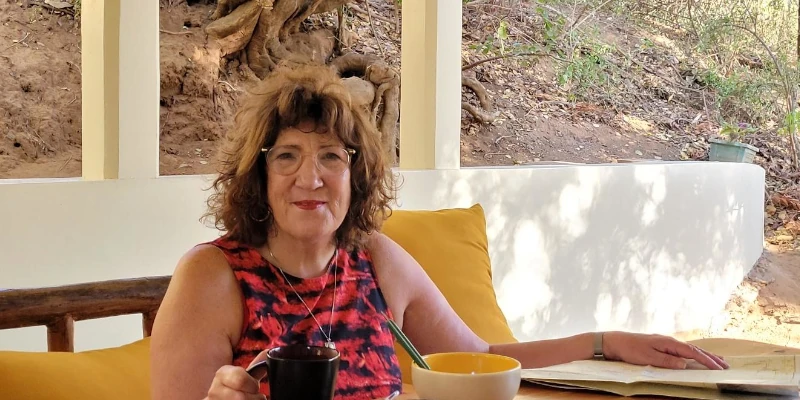‘From Colonialism to Collective Futures: a Sociological Journey’ with Prof. Mairéad Dunne

Máiréad Dunne is a Professor of Sociology of Education at the University of Sussex and former Director of its ‘Centre for International Education’ Her research employs critical (feminist, postcolonial, intersectional) approaches to study how education and society shape identities - gender, class, race, ethnicity, religion, nation, age - and how these factors influence inequality, development, and social reproduction globally
Growing up different—and deciding to ask why:
Máiréad’s story begins on a South London council estate where her Irish Catholic family often felt visibly 'other.' She recalls being bussed to segregated schooling, a sense of being constantly ‘on guard’ especially as tensions heightened during the Troubles, a strong sense of difference and never feeling ‘at home’. Years later, after being passed over for a promotion because the job went to 'a family man,' she walked away from teaching in England and volunteered in Kenya. There, the absurdity of asking Kenyan pupils to memorise the reproductive parts of a buttercup - while hibiscus bloomed outside the classroom - convinced her that something was deeply wrong with the colonial shaping of curriculum knowledge. That moment sent her back to do a master’s in education and development, then a PhD on mobility, race, class, and gender in the UK.
What she studies—and why it matters:
Máiréad now calls herself a sociologist of education - and a post-structural feminist. Rather than looking only at schools, she explores how people learn their place in society and imagine their futures. Education processes and practices, including tests, she argues, often masquerade as neutral while channeling young people into gendered, racialised, and classed positions. Beyond the minority world she has engaged collaboratively with other researchers in West, East and Southern Africa; South Asia, South America and the Pacific Island states. The emphasis of her research has been to give space to marginalised or silenced voices and to bring them to bear on policy, practice and theory.
 Photo: Máiréad Dunne at UCC
Photo: Máiréad Dunne at UCC
First impressions of UCC and ISS21:
On study leave from Sussex, Máiréad scanned UCC’s website and was struck by ISS21’s deliberately interdisciplinary ethos. 'It felt like the perfect place to think across boundaries,' she says, delighted by projects that pull social scientists, historians, philosophers, lawyers, and health professionals into the same conversation.
Throwing herself into campus life:
Since arriving, she has attended 'loads' of events: a bystander-intervention study, an ‘International Women’s Day’ walk of Cork city, an Alzheimer’s project, night-time walks discussing darkness and safety, panels on ethnicity, gender, and law, even a massive migration-studies conference. She also delivered two lectures - one on methodology for doctoral students and another on coloniality, race, class, and gender at ISS21 and CSF (Collective Social Futures). Each session unpicked the taken-for-granted ideas of identity and difference and highlighted the complex, contextually contingent social relations through which these are constituted.
What a spring-to-autumn visit teaches:
Máiréad arrived in late February and will stay until mid-October. In just a few months she has engaged with 'gritty arguments' about national identity, religion, health, and belonging - and forged connections and friendships she expects will outlive the visit.
Why every scholar should pack a bag:
When asked whether she would recommend visiting-ships, Máiréad does not hesitate: stepping out of one’s 'safe space' is the quickest route to intellectual growth. It lets researchers hear how others frame familiar problems and, just as important, experience daily life somewhere new.
A final wish for UCC:
She sees 'massive goodwill and potential' at ISS21 and CSF and hopes for deeper links with Sussex - plus even more engagement with researchers and communities in lower-income countries. After all, Kenya taught her the most profound lesson of her career: 'They didn’t learn anything from me; I learned everything from them.'
UCC Research Staff Association
Contact us
C/O Hydraulics and Maritime Research Centre, Pouladuff Rd, Togher (UCC Internal)
